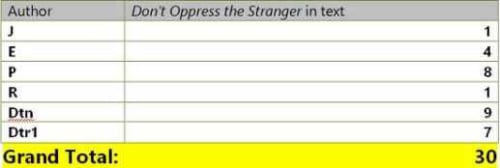So, Rabbi Sharon Brous (of IKAR, LA, California) made me aware of this saying in the Torah:
“Do Not oppress a stranger. You should know the soul (feelings) of the stranger, for you were strangers in the land of Egypt”
(Exodus/Shmot, 23:9) (transl. Sefaria.com)


